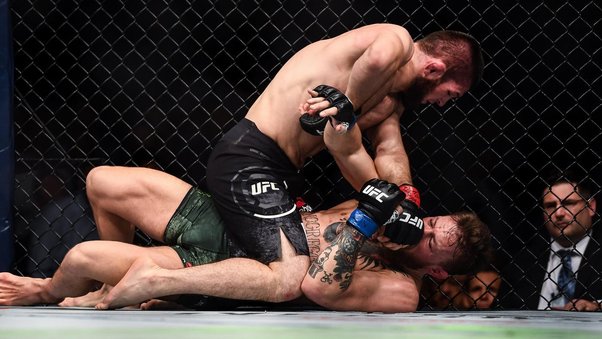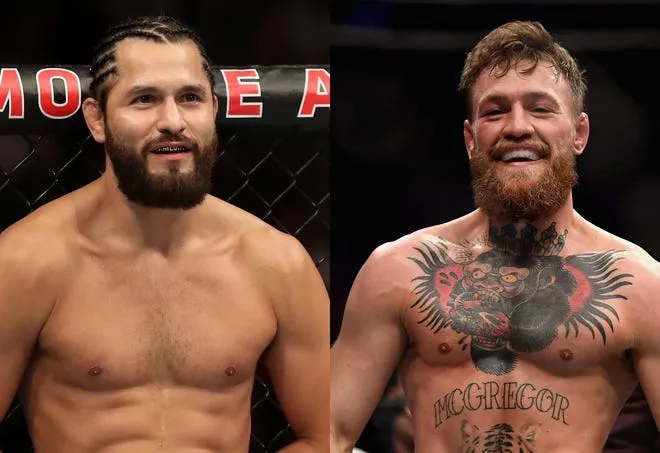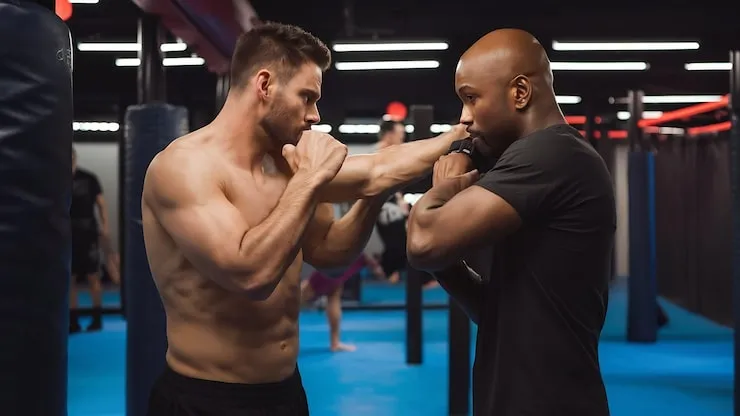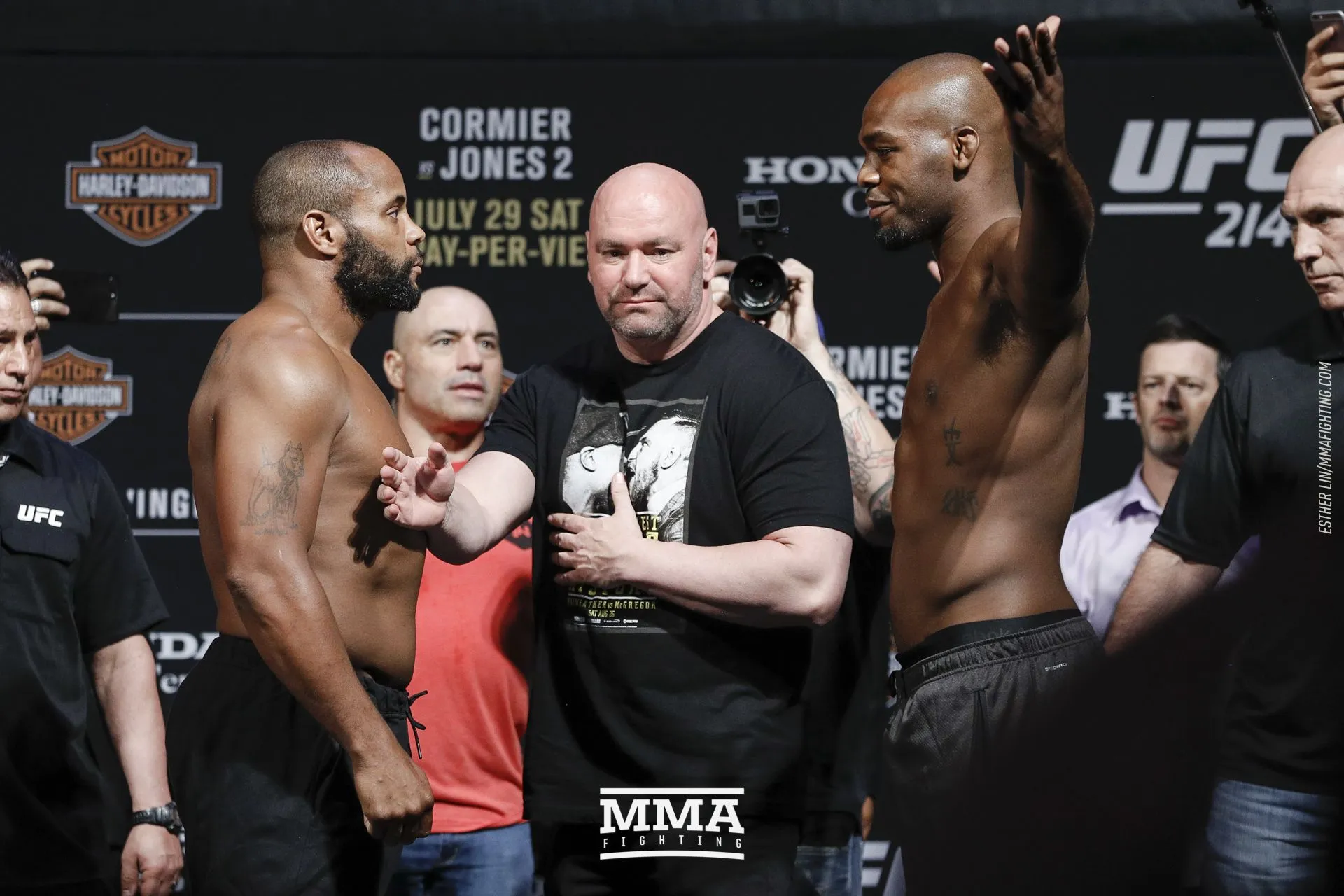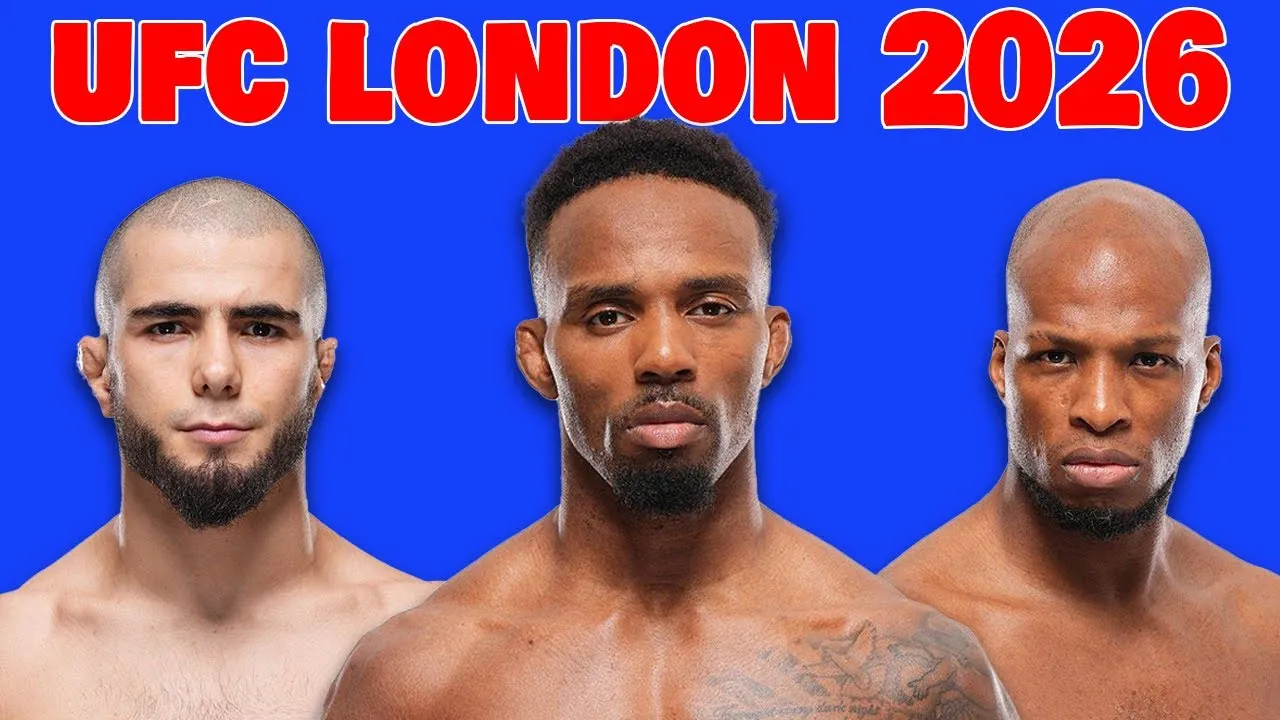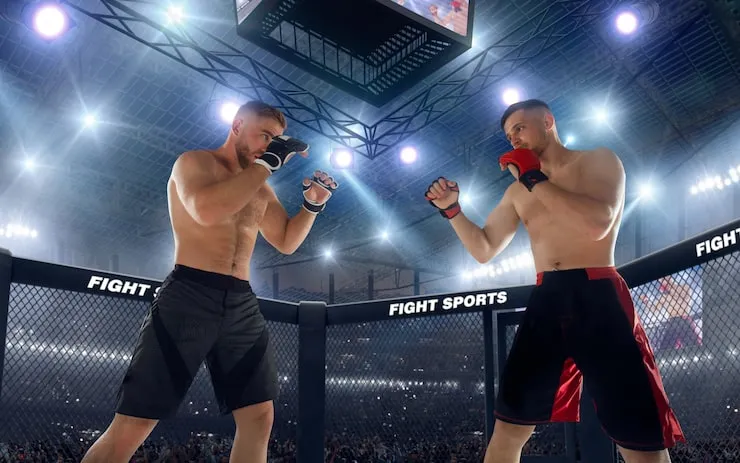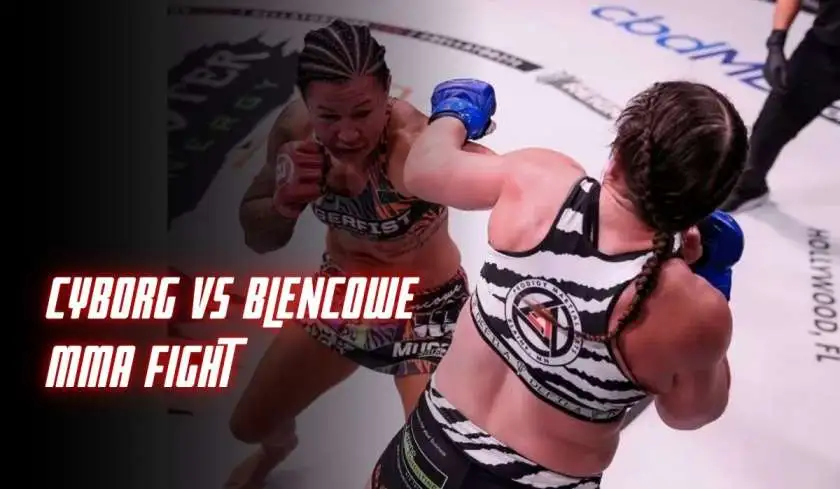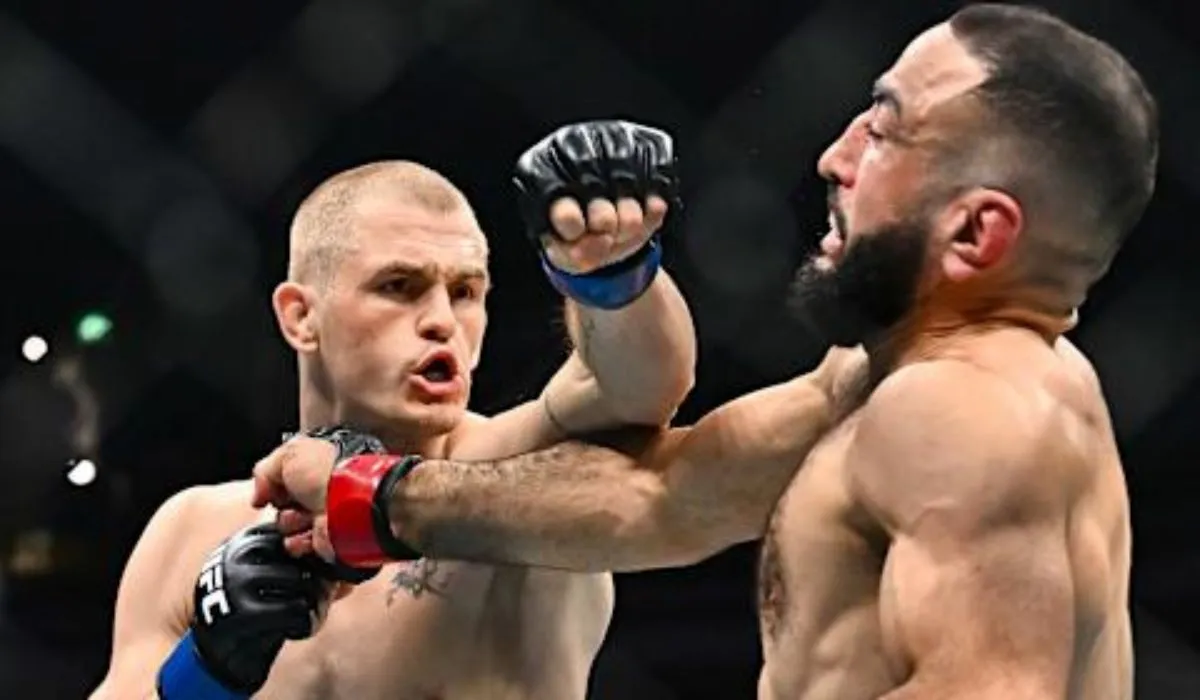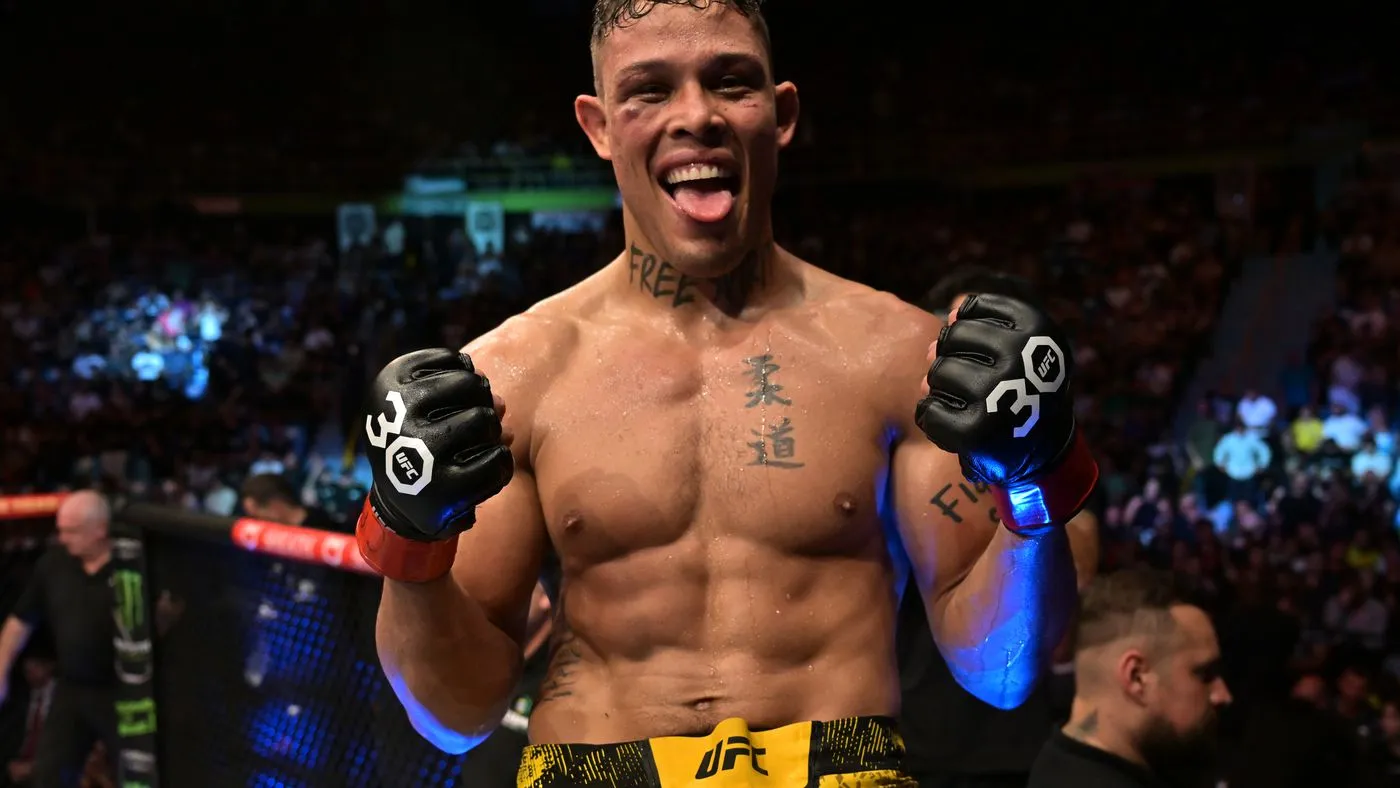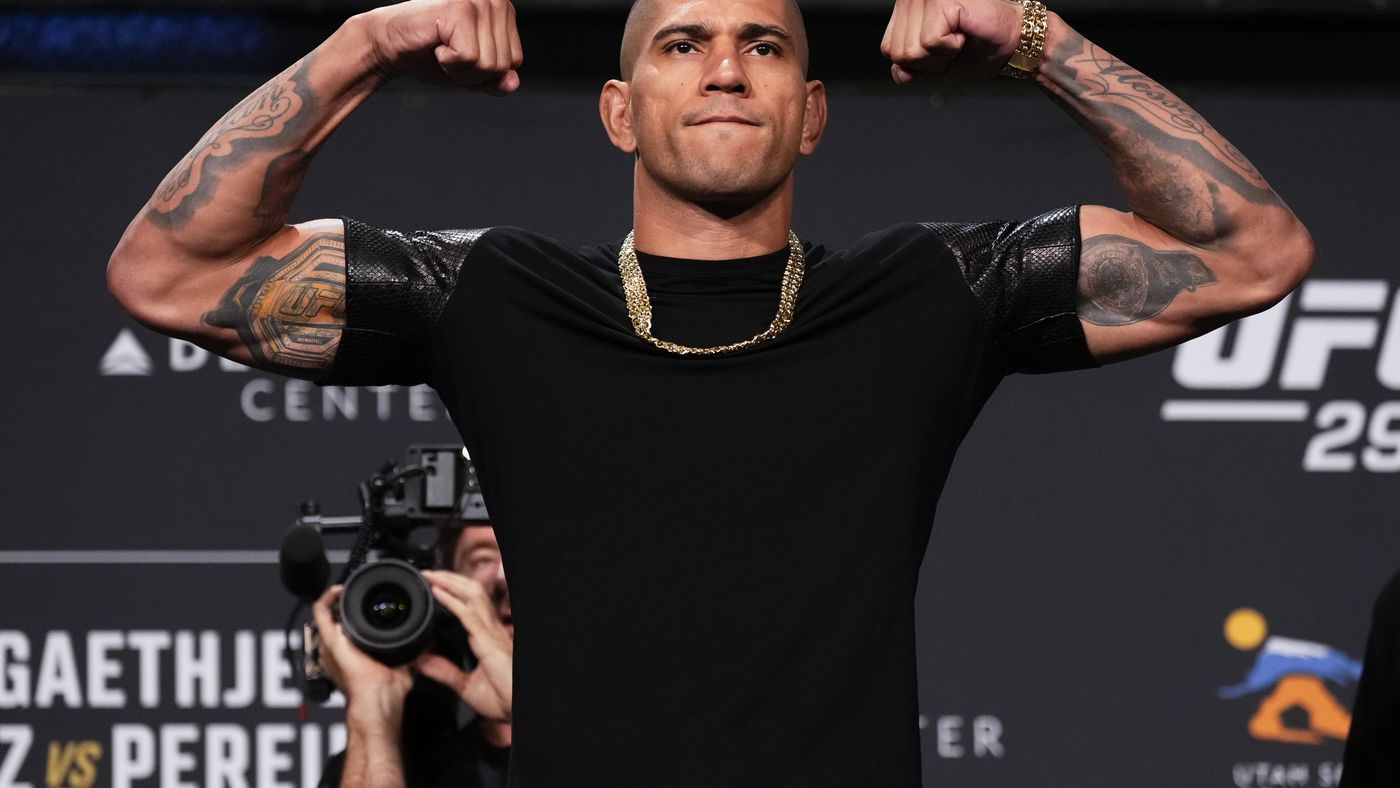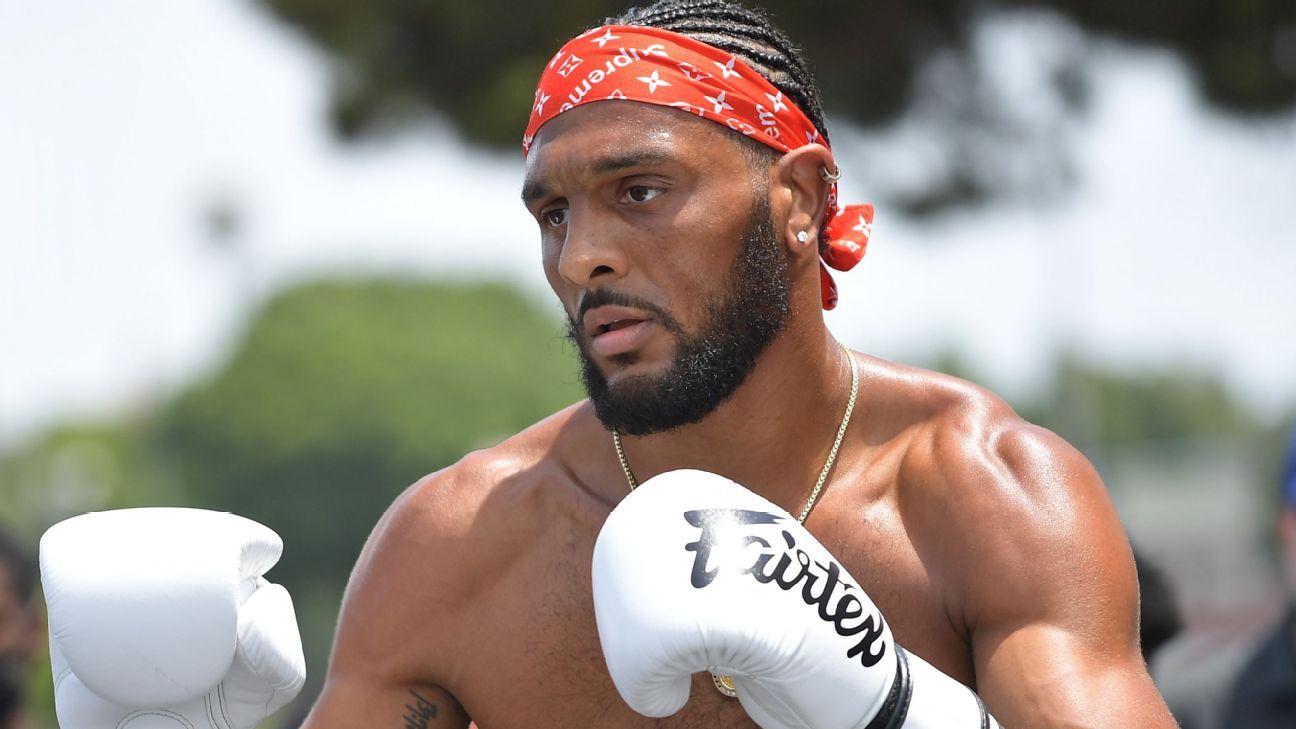
Few things infuriate MMA fans more than a fight being scored incorrectly, though the term “robbery” tends to be thrown around carelessly and is often steeped in bias. With Robbery Review, we’ll take a look back at controversial fights and determine whether the judges were rightly criticized for their decision or if pundits need to examine their own knee-jerk reactions.
An all-time great champion returns from a long layoff to recapture the bantamweight title that he’s defended more than anyone else, challenging a younger opponent eager to add to their own legacy. That’s the story of Dominick Cruz heading into his matchup with Henry Cejudo at UFC 249 tonight, and that was the story when Cruz faced off with T.J. Dillashaw at a UFC Fight Night in Boston on Jan. 17, 2016.
Like the majority of Cruz’s fights, the bout ended in a decision that went his way. But matched up with a rival who represented the evolution of his own style, he was forced to navigate through five of the most challenging rounds of his career. Two of three judges felt Cruz was the better man that night, and “The Dominator” was back on top after fighting for just the second time in over four years.
Given the narrative, it was easy to get caught up in Cruz’s storybook moment. But looking back now, is there a case to be made that Dillashaw did enough to spoil it? Thanks to the UFC uploading this fight for free, everyone can join along in this edition of Retro Robbery Review.
What was the official result?
Dominick Cruz def. T.J. Dillashaw via split decision.
How did the fight go?
First off, what a pleasure it was to see Cruz back in a five-round fight. Whether you love or hate his style, at his best, there isn’t anyone like him.
Dillashaw does a more than serviceable impression, but even he can’t keep the same pace that Cruz does for 25 minutes. What Dillashaw did show in this fight is incredible patience and adaptability, especially for a fighter who’d been a pro for a little under six years by this point.
Rather than let Cruz establish a rhythm, Dillashaw took on the role of the aggressor early, and he maintained that for much of the fight, even as he was occasionally frustrated by Cruz’s trademark elusiveness. That’s one major factor that makes this fight so difficult to judge. Cruz found creative ways to make Dillashaw miss, but did Dillashaw land enough anyway to deserve the judges’ nod?
Cruz peppers Dillashaw with his right hand and inside leg kicks, even as Dillashaw walks him down. By the way, props to referee Herb Dean for keeping up with these two and managing to not accidentally interfere with the fighters even as they explored every inch of the studio space.
Was Dillashaw controlling the fight with his forward movement, or was it Cruz who coaxd Dillashaw to chase him and approach at angles that left him vulnerable to Cruz’s counters? Through the first two rounds, the results were unclear. It looked like Dillashaw was connecting at a higher rate than any of Cruz’s past opponents. On the other hand, he was also caught off-balance a few times and even got taken down by Cruz. A strong wrestler himself, Dillashaw didn’t allow Cruz to get in much offensively during their brief time on the ground.
Heading into round three, Dillashaw’s team had to be hoping that he’d already banked a few 10-9s, because Cruz soon got into a groove. He picked away at Dillashaw, rolled with the punches and kicks, and generally looked like the less damaged fighter. His straight punch flurries connected, and there were times when it looked like Dillashaw’s movement slowed just a tad, which opened the door for Cruz to sneak in more strikes.
Round four was exceedingly close. Dillashaw continued to push the pace, but Cruz was right there with a counter. If Dillashaw’s was hurting Cruz, he didn’t show it. It was also difficult for either man to score anything substantial without getting some form of retaliation. Cruz got his fourth takedown of the fight off of a kick, and he managed to throw at least a couple of punches on the ground before Dillashaw scrambled out of danger. Dillashaw threw a nice combination to end the round.
Cruz continued to get away with those classic off-balance punches in round five, but Dillashaw blocked most of the more intense flurries. He was almost too calm, perhaps thinking he’s already won three of the four previous rounds. The game plan remained the same and he pursued a knockout of Cruz until the final seconds ticked off.
What did the judges say?
Sal D’Amato scored it 49-46 Dillashaw.
David Ginsberg scored it 48-47 Cruz.
Tony Weeks scored it 49-46 Cruz.
The only round that all three judges scored the same was the second, 10-9 Cruz. Other than that, we are all over the place here.
D’Amato gave the last three rounds to Dillashaw, Ginsberg gave the first three rounds to Cruz, and Weeks had Cruz taking rounds two to five.
What did the numbers say?
(Statistics per UFC Stats)
Going strictly by who landed more significant strikes in each round, Dillashaw only edged out the last one. Cruz won rounds one, two, and four (21-19, 17-16, and 25-22), and fought Dillashaw to a 19-19 standstill in round three. Just looking at total strikes landed, Dillashaw had the edge in rounds one, four, and five. Overall, Cruz landed 112 significant strikes to Dillashaw’s 109, while Dillashaw won the total strike battle 130-122.
Normally, percentages shouldn’t factor into the scoring, but I have to wonder if Cruz holding Dillashaw to just 26 percent in significant strikes landed played part in the how the judges perceived the action. According to the numbers, Dillashaw missed 300 strikes! In comparison, Cruz missed 190.
Dillashaw did most of his work to the body and leg, beating Cruz 22-9 and 23-6 in those areas, respectively. However, Cruz had a huge advantage in significant strikes to the head with 97 head strikes landed to Dillashaw’s 64.
Cruz was credited with four takedowns to Dillashaw’s one, taking the champion down in each of the first three rounds, but he did not register any successful ground strikes.
What did the media say?
(Data derived from MMA Decisions)
There was a great divide here as 12 of the media members tallied by MMA Decisions scored the fight for Cruz, while 10 saw it for Dillashaw. Three unique scores came from Bloody Elbow, with one 49-46 card for each fighter and one 48-48 draw verdict being submitted.
What did the people say?
Fans on MMA Decisions overwhelmingly agreed with the judges, voting 50.4 percent in favor of 48-47 Cruz. That number passes 65 percent when you include the voters who scored it 49-46 or 49-47 for the challenger.
The remaining scores represented in the top-5 of voting results are 20.2 percent for 48-47 Dillashaw, and 5.3 percent for 49-46 Dillashaw.
How did I score it?
I had this one for Dillashaw when it originally happened, and I still feel comfortable with that call, even with the benefit of hindsight.
Several questions came to mind upon review: Did I give Dillashaw too much credit simply for doing better than most of Cruz’s opponents? If Cruz’s movement remained mostly the same throughout the fight, then how much damage was Dillashaw actually doing? Is Cruz just better at creating the illusion that he is in control?
In the end, I favored Dillashaw in rounds one, four, and five, perhaps influenced by the champion’s supposed “octagon control,” which should only come into play if the striking is equal. I think that aggression should matter here as Cruz’s narrow significant strike advantage doesn’t tell the story of the fight for me. Yes, Cruz made Dillashaw miss, but he was getting hit a lot too.
The four takedowns are also a non-factor for me, as Cruz initiated zero offense off of them and Dillashaw either got back up or reversed within seconds. Frankly, if you ignore those, I think there’s a case to be made that Dillashaw won round two despite all three judges saying otherwise.
Was it a robbery?
Cruz was masterful in fooling the judges here, and I say that with the greatest respect.
Much like boxing great Floyd Mayweather, Cruz not only excels at avoiding damage, he’s just as good at making it look like he’s avoiding damage even when his opponent connects. Seriously, watch this fight over. You can probably count on one hand how many times Dillashaw lands a strike that causes Cruz to show any sign of being hurt. It’s only through the benefit of replay – or perhaps an existing bias given my expectations going into the review – that I could discern that Dillashaw’s clean strike count was higher than it seemed at first glance.
The numbers say Cruz landed more strikes, but they also show that Dillashaw was more diverse in his attack, and I don’t believe that Cruz’s head strike advantage was as substantial as it looks on paper. Yes, his in-and-out movement was as brilliant as always. I just don’t feel it was enough to get him the win here.
You can’t blame the judges for having issues with scoring this one live – the fight was that close and that good. Fortunately for us, Robbery Review is all about taking advantage of hindsight as much as possible and thus, my judgment has been rendered.
The final verdict
Not a robbery. But I still think Dillashaw won.
